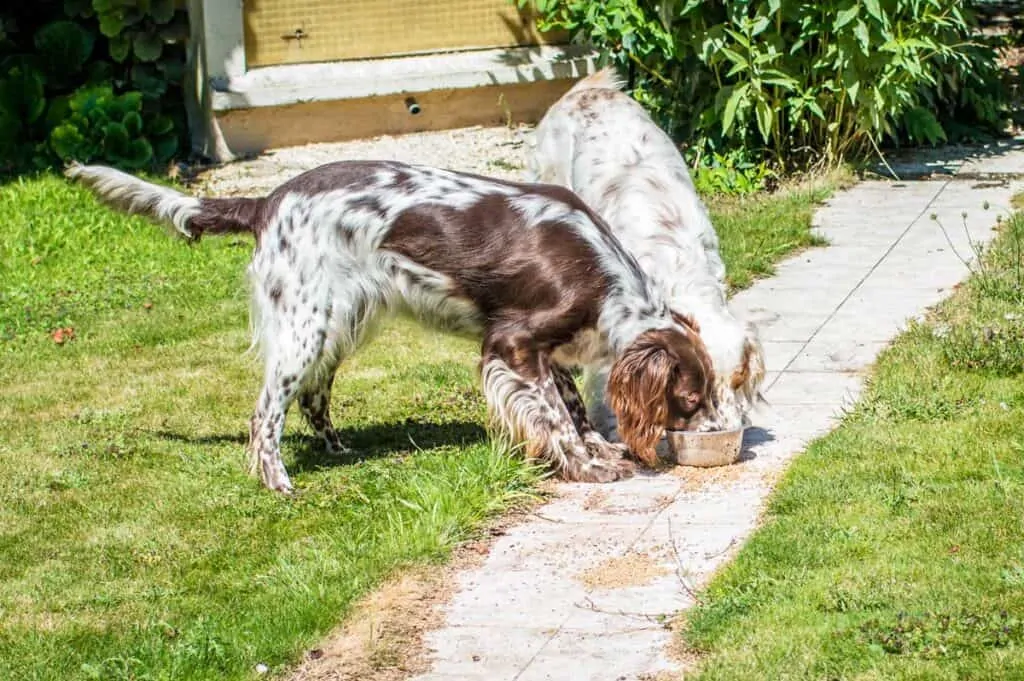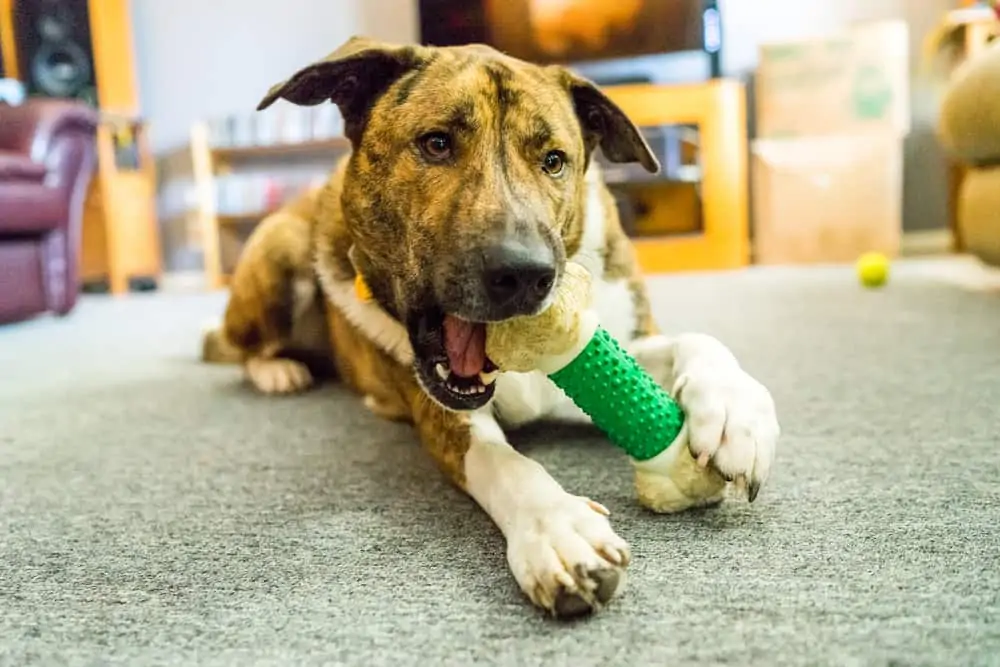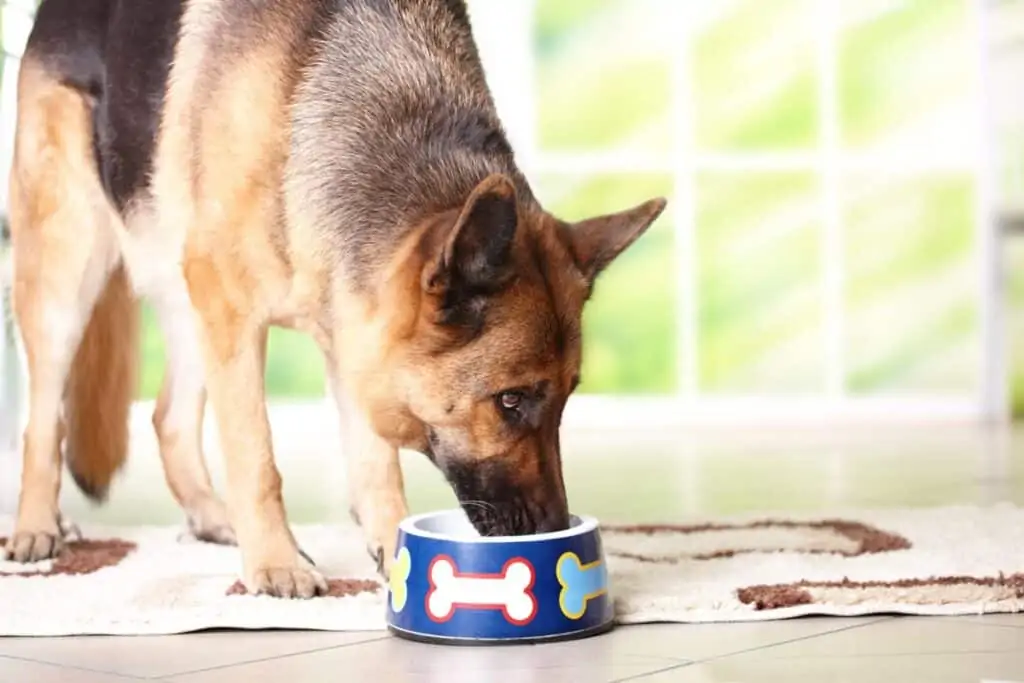Why Is My Dog’s Stomach Is Gurgling?
Having a dog is one of the most rewarding and enjoyable things in life. Still, it can be very stressful, especially if you suspect that your dog is sick or something is physically wrong with them.
The good news is that it’s perfectly normal for a dog’s stomach to make gurgling sounds. It happens as they digest their food and as their organs work. However, if the noises are unusually loud or if your dog is displaying other signs of discomfort, it could be a sign that something else is wrong.

This article will discuss the most common sources of stomach sounds in dogs. That way, you can evaluate your dog’s gut and decide if you need to visit the veterinarian.
The Most Common Causes of Stomach Gurgling
There are four leading causes of stomach gurgling in dogs, and one of these is the most likely culprit for your pup’s tummy sounds:
- Mild upset stomach
- Gas
- Hunger
- Stress
Mild Upset Stomach
Just like us, dogs can get a mildly upset stomach from time to time for a variety of reasons. One of the most likely is that something new was introduced to their diets.
If you’re in the process of changing your dog’s food, that’s almost certainly the cause. Even a new treat brand might take them some time to get used to. It’s also possible that they ate something that they shouldn’t have.
Even if it’s harmless, it can be the source of mild discomfort.
When you have your dog outside, pay attention to ensure that they don’t eat any trash or debris. If you have a yard for them to wander, periodically walk around and ensure that nothing tasty has found its way to your yard. Indoors, always keep all food and edibles out of the reach of your pets.
Your dog might be slightly more lethargic and possibly have less interest in eating with a sore stomach, but more than likely, you won’t notice any other changes in behavior. If you do, it could be something more serious after all.

Gas
Gassiness might accompany a mild upset stomach or appear on its own. The sound that you’re hearing is a gas bubble making its way through your dog’s digestive system. It causes some discomfort for your dog, but you shouldn’t notice any drastic changes in behavior.
As you might expect, that gas has to find its way out of their bodies somehow, and that often happens in the form of flatulence. It might create a somewhat stinky and unpleasant environment for their family, but it’s a good sign that they’re working out the issue independently.
Hunger
Once again, dogs are very similar to us in many ways, and one of them is that their stomachs “growl” when they’re hungry, too.
If you hear the gurgling sounds close to mealtimes, then hunger is almost certainly the cause. Pay attention to whether the sounds stop after your dog eats. You might want to consider feeding them a little earlier if they seem uncomfortable or upset by the hunger pangs.

Stress
Dogs experience their emotions viscerally, which means that they’ll feel them in their bodies just as much as their minds. Stress can manifest itself in digestive or stomach issues that cause gurgling sounds.
When your dog is stressed, their bodies release hormones to help them react, and these hormones enter their guts and can wreak havoc.
Look for other signs of stress, which vary from dog to dog. Some canines will seek the protection of shelter by hiding in a small space such as under the bed or in a closet. Others will become very clingy and even display separation anxiety.
Many things can cause a dog to become stressed, including changes in their family or home environment and real or perceived threats. Dogs also pick up on your emotions, so if you’re particularly stressed, they might get it from you.

More Serious Sources of Stomach Sounds in Dogs
Unfortunately, we also have to consider more severe sources of stomach gurgling in dogs. You don’t need to be concerned about these conditions immediately upon hearing these sounds, but if they persist more than a day or happen frequently, you may want to see the vet.
Disease and Illness
Several chronic medical conditions can cause audible intestinal disturbances. These include pancreatitis, which can be chronic, and inflammatory bowel disease. Other signs of both include diarrhea and vomiting.
Your dog is also more likely to act like something is wrong. They may not want to eat.

Parasites
Certain types of intestinal worms and other parasites can cause gurgling sounds in your dog’s gut. If your dog has been hungrier than usual or eating more and losing weight, those are tell-tale signs of parasites.
Blockages
If your dog eats something that their bodies cannot digest, it can cause a blockage somewhere along their digestive tract. These can become very serious quickly. It’s one of the many reasons to protect your dog by dog-proofing your home, especially the areas they’ll occupy when they’re unsupervised.
Be extra cautious of this if your dog has had recently had surgery, and is now not eating.

How to Help Your Dog’s Gurgling Gut?
As long as the cause of the gurgling isn’t serious, there are some things you can do to ease your dog’s discomfort. First, don’t try to stop them from eating grass. Grass can calm an aching belly or induce vomiting, which might provide relief. But limit the volume and don’t let them eat plants.
It’s your dog’s instinctive way to help themselves.
Stick to their regular feeding schedule, but consider feeding them plain boiled chicken and white rice instead of their typical fare. Like people, bland foods that are easy to digest are better on a bad tummy. However, if they’re vomiting, withhold food for at least 12 hours.

If your dog’s stomach is gurgling because they’re hungry, divide their total serving of food into three, and feed them three times a day. Situate their new eating times around when the sounds seem to be worse.
Try to keep your dog’s stress level down by avoiding disruptions to their routines. When upsetting things happen (and they will), reassure them with extra attention and keep comforting items like blankets and toys.
Finally, basic steps to protect their overall health will ease any discomfort they experience and help them bounce back quicker. Make sure they eat an appropriate amount and get plenty of exercise, love, and attention.

When to Visit the Vet
Undoubtedly, you’re reading this article because you’re concerned for your dog’s wellbeing. There are a few rules to follow for a trip to the vet for stomach gurgling. First and foremost, if you know the cause and it is dangerous (eating foreign objects or intolerable foods), bring your dog to the vet or an emergency clinic immediately.
Another reason to call the vet is if the gurgling gets considerably worse in a short period or is accompanied by vomiting, diarrhea, or loss of appetite.
Also, if it lasts for more than 24 hours, that can be concerning. Finally, if your dog acts uncharacteristically like something is wrong, they are likely in distress and need medical attention.
Loving your dog involves being attuned to their physical wellbeing. It can be unsettling to hear strange sounds emitting from their abdomen, but as you can see, it’s usually harmless. Pay attention to the sounds and call your vet if the need arises.